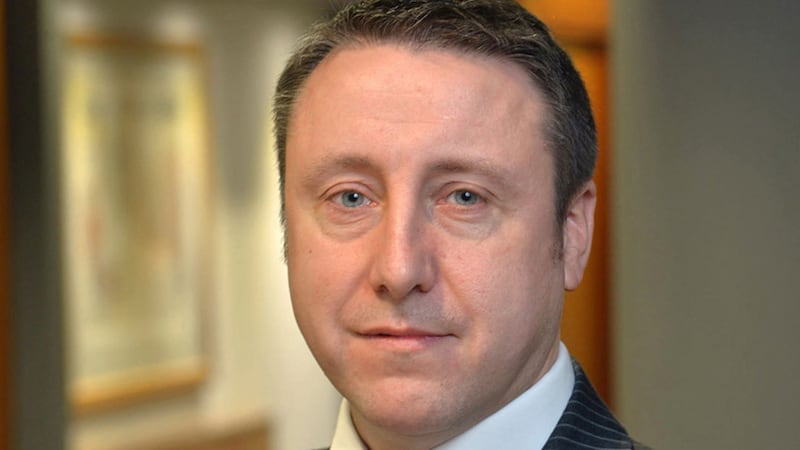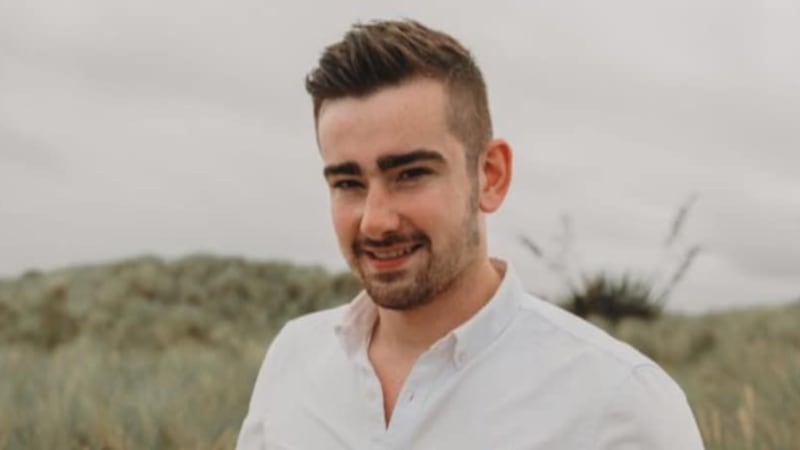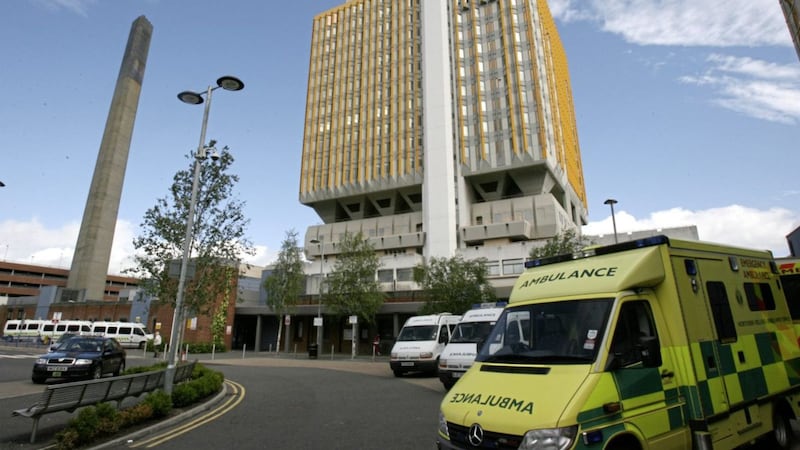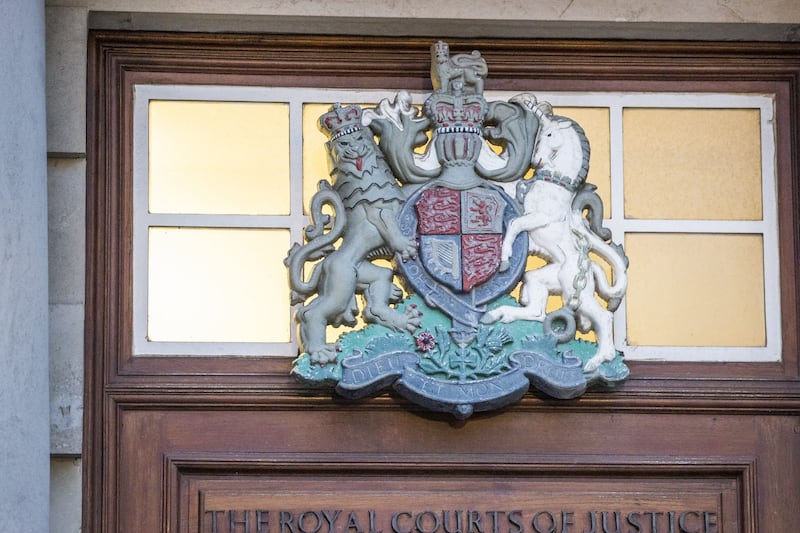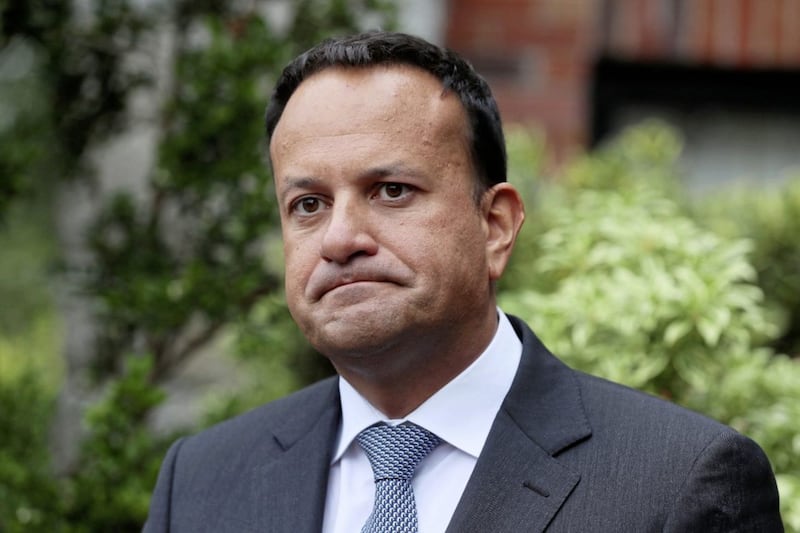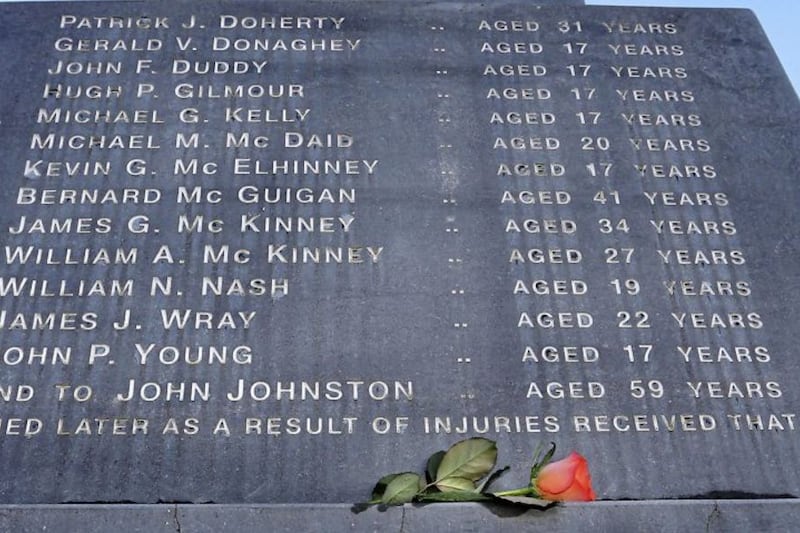Stephen Herron has been named as the new director of public prosecutions (DPP) for Northern Ireland.
Mr Herron, the current senior assistant director of public prosecutions, has risen quietly through the ranks of the Public Prosecution Service (PPS) and would not previously have held a high profile, public role.
He will take up the role from January 2 2018.
Mr Herron's appointment was announced this morning by Attorney General John Larkin.
Barra McGrory, who announced his decision to step down earlier this year, will leave the office before the Christmas recess.
Mr McGrory said in his last days as DPP that legacy arrangements as they currently stand are "unsustainable".
was appointed director of the PPS in 2011 replacing Sir Alastair Fraser.
Called to the bar in 2009, Mr McGrory was the first solicitor in Northern Ireland to become a QC.
During his private practice, he represented a wide range of clients, including the late Martin McGuinness, Gerry Adams, loyalist paramilitaries, unionist politicians and former police officers.
Since taking over the job as DPP he has overseen more than 330,000 prosecutorial decisions.
He has also made 22 referrals to the Chief Constable for further investigation under Section 35 of the Justice Act, this includes the activities of the agent known as Stakeknife, currently being investigated by independent English detectives.
Mr McGrory revealed that 50 per cent of his team's time is currently taken up dealing with legacy cases, with more than a quarter of his personal time dealing with historic cases.
Speaking about proposals for a statute of limitations for members of the British Army Mr McGrory said: "As DPP a partial amnesty would be difficult to manage.
"It would certainly invite challenges but it's not for me to say whether it's legal or not. If it's a statute then it would have gone through parliament, but in regards to the international legality of it, it would be questionable."
He also said that legacy arrangements, agreed under previous political negotiations, would be "utterly unsustainable" with the current resources available.
"I would expect with the pot of money set aside for the Stormont House Agreement that a certain amount of that would come our way but it will still, never the less, be a significant burden on the prosecutor's office".
The current political impasse and absence of a Justice minister has halted planned reforms of the criminal justice system.
Mr McGrory said: "There are significant legislative reforms that we had been seeking that are not moving as a result.
"There are an awful lot of reforms being held up, there is no doubt about that. It is difficult to make progress in terms of re-structuring the justice system in the absence of any political leadership."
One of his last decisions was in relation to the so called loyalist supergrass Gary Haggarty. While one man will be prosecuted for a sectarian killing linked to evidence provided by the former UVF commander, a further 13 people - including two police officers - will not because of lack of corroborating evidence.
Asked whether he felt it was the end of the road for any future so-called 'supergrass' cases Mr McGrory said: "It's the law. It's not for me to speak on that. The law provides a structure and mechanism in which accomplice evidence in these cases can be evaluated and through which the sentencing can be done transparently, which is much better than it was before in the old supergrass era, as it was called.
"It has improved in that regard, what hasn't improved or changed significantly at all is perhaps the reliability of that evidence and very difficult decisions have to be taken around that.
"It has been a frustration because the prosecutor's office takes a lot of the heat. If the prosecutor decides not to prosecute a case then the unhappiness is directed towards the prosecutor rather than necessarily the reasons or the evidential reasons as to why that prosecution shouldn't be taken.
"Similarly if a case is taken and it doesn't succeed then the criticism seems to fall on the prosecutor to take responsibility for that," he said.
"The difficulties in the legacy cases have perhaps led to some criticism of the prosecution service. That was down to a small number of politicians and I was disappointed with those contributions but, by and large, I have a had a very positive relationship with our political class."
